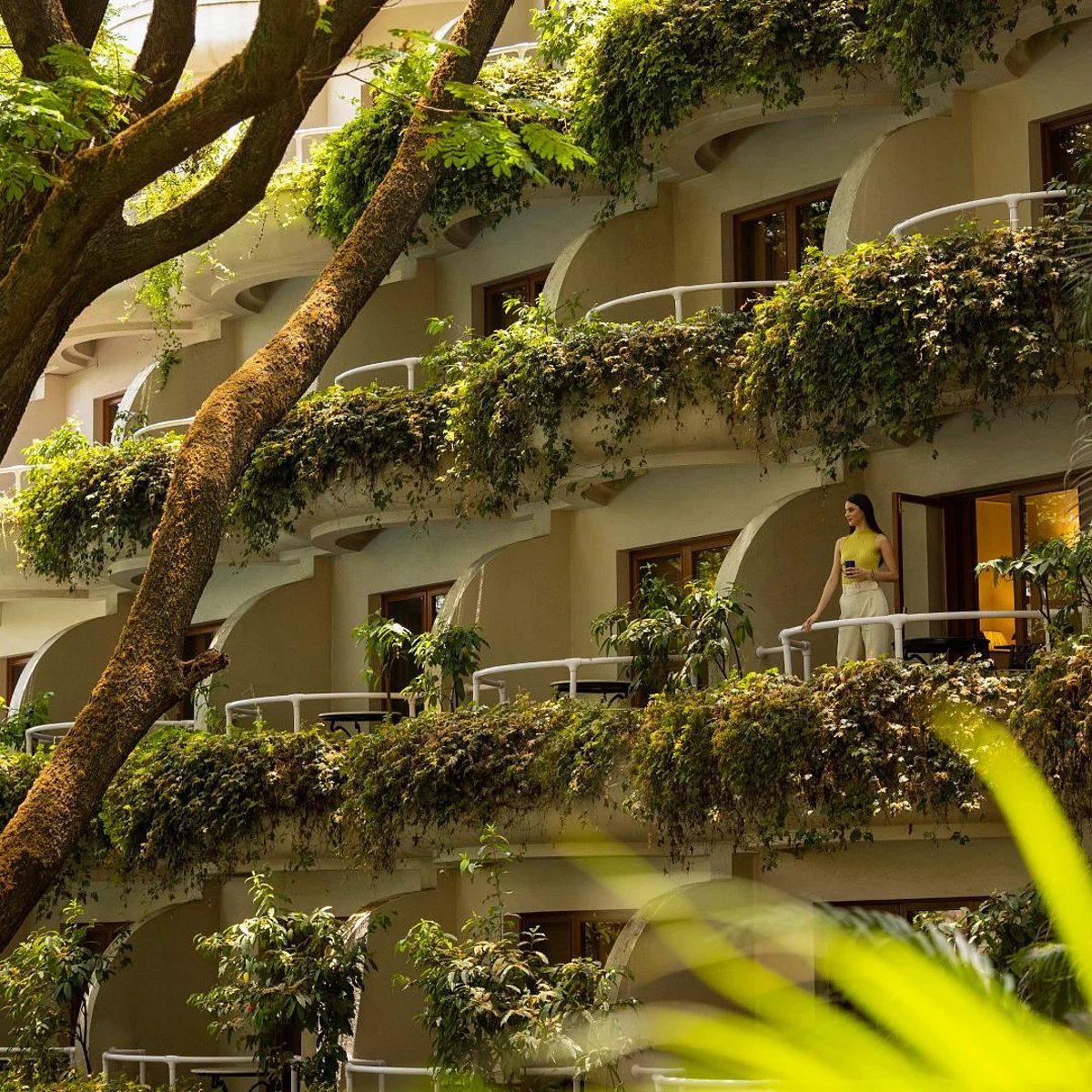Hotels & Accommodations
Is Berkeley’s Hotel Industry Overcoming Rising Costs and Soft Demand with Resilience and Steady Tourism Recovery Compared to San Francisco and Oakland? Here’s More New Information For You

Published on
August 8, 2025 |
By: TTW News Desk
Berkeley, a city known for its academic legacy and vibrant cultural scene, has not been immune to the struggles that have beset the hospitality industry in the Bay Area. Since the pandemic, the local hotel market has faced a range of challenges, from a decline in demand to rising operational costs. However, while several hotels have closed their doors or filed for bankruptcy, there are signs of resilience in Berkeley’s hotel industry. The city’s steady recovery, aided by its unique position as a college town, provides an interesting perspective on how some areas are faring better than others in the region.
Soft Demand and Rising Costs Impact Berkeley’s Hotel Market
The aftermath of the pandemic has left a significant mark on the global tourism industry, and Berkeley’s hospitality sector has not escaped its effects. Like many cities, Berkeley has seen softer demand for hotel rooms, as travelers continue to navigate concerns over safety, convenience, and cost. The double impact of reduced demand for both business and leisure travel, coupled with rising costs for essentials such as labor and supplies, has made it increasingly difficult for local hotels to remain profitable.
While Berkeley’s hotel tax revenues have dropped, they have not suffered the same dramatic losses as those seen in other parts of the Bay Area. Still, some of the city’s largest hotels have faced serious financial challenges. For example, the DoubleTree by Hilton, the largest hotel in Berkeley, located at the waterfront, faced financial turmoil after ceasing rent payments on its city-owned property earlier this year. The property was reportedly at risk of defaulting on a $48.3 million loan, underlining the pressures many hotels face as they attempt to recover from the pandemic’s economic toll.
The University Inn and Suites in West Berkeley, another local hotel, declared bankruptcy in June, highlighting the difficulties small and mid-sized hotels are experiencing. This follows a trend seen across the country, where hotels that rely on a combination of transient business, convention traffic, and tourism are feeling the strain. A more significant concern for Berkeley was revealed in May when it was disclosed that several large hotels had stopped paying their nightly room taxes. This issue has contributed to a shortfall in the city’s hotel tax revenues, which fell below pre-pandemic levels.
Despite these setbacks, Berkeley’s hospitality sector has shown surprising resilience. While hotel occupancy rates in the first half of 2025 were consistently lower than in 2019, the city’s hotel revenues have remained relatively stable. This has been attributed to the consistent flow of visitors, drawn in part by Berkeley’s prominent position as a college town and its proximity to major Bay Area attractions.
Shifting Hospitality Landscape in Berkeley
Berkeley’s unique identity as a college town has played a crucial role in its ability to weather the storm. While larger cities like San Francisco and Oakland have been plagued by significant declines in convention business and corporate travel, Berkeley has maintained a steady stream of visitors related to the University of California, Berkeley. This steady influx of students, academics, families visiting students, and faculty has provided a buffer against the broader declines seen in the hotel industry. The consistent demand from these visitors has helped local hotels maintain a relatively stable revenue base, compared to other parts of the Bay Area.
Moreover, Berkeley has also seen some growth in its hotel inventory. The addition of the Residence Inn in downtown Berkeley in 2021 has helped offset the losses from the closure of some older hotels. The Residence Inn, with its extended-stay accommodations, has contributed to an increase in the number of available hotel rooms in the city. As a result, Berkeley’s total hotel room inventory has grown slightly, from 1,471 before the pandemic to 1,514 rooms today. This growth in room availability has helped ensure that the city is not entirely dependent on any single sector of the hospitality industry.
However, not all hotels in Berkeley have remained open. The Bancroft Hotel, a historic building located across from the UC Berkeley campus, closed its doors after its owner sought city approval to convert the property into student housing. This trend of repurposing hotels for non-tourism uses reflects broader shifts in the region’s hospitality market, as hotels increasingly compete with short-term rental platforms like Airbnb and other alternative accommodations.
The Impact of Rising Costs on Berkeley’s Hotel Industry
As with other parts of the Bay Area, Berkeley’s hotels are grappling with rising costs that have put pressure on their profitability. These costs have been exacerbated by inflation, particularly in labor, insurance, and supply chain disruptions. The increased cost of doing business has made it more difficult for hotels to remain competitive, especially for mid-range and lower-tier properties. For example, the rise in labor costs has made it harder for hotels to maintain their operations without increasing prices, which could deter budget-conscious travelers.
The increase in costs also makes it difficult for local hotels to remain competitive with alternative accommodations such as Airbnb, which often offer lower prices and more flexible options for travelers. This shift has made it harder for hotels to maintain occupancy rates, and many have had to adjust their business models to meet the changing needs of travelers. Some hotels, like the Residence Inn, have adapted by targeting longer-term stays and offering special pricing for student accommodations, reflecting a broader trend in the market toward more flexible, affordable travel options.
Tourism Recovery in Berkeley: A Steady, Long-Term Process
While other parts of the Bay Area have seen slower recoveries, particularly in the San Francisco and Oakland markets, Berkeley’s tourism industry has shown a steady rebound. The city has benefitted from its unique position as a hub for academia and culture, as well as its status as a more affordable alternative to some of the region’s more expensive tourist destinations. Berkeley’s tourism office, Visit Berkeley, has focused on leveraging these advantages to position the city as a desirable destination for visitors from across the globe.
One of the key factors driving Berkeley’s recovery has been its growing reputation as a welcoming city for a diverse range of travelers. Visit Berkeley’s marketing campaigns have focused on attracting visitors from Mexico and Canada, as well as LGBTQ+ travelers seeking a progressive, inclusive destination. This shift in focus reflects the city’s progressive values and its emphasis on creating an environment where all visitors feel welcome.
Additionally, Berkeley has capitalized on its cultural assets, including its proximity to the UC Berkeley campus, the Lawrence Berkeley National Laboratory, and a host of outdoor activities in the surrounding areas. These attractions, combined with the city’s vibrant dining scene and eclectic neighborhoods, make it an appealing destination for tourists seeking both culture and relaxation.
Berkeley’s Hotel Industry: A Model of Resilience Amid Broader Struggles
Despite the challenges posed by the pandemic, rising costs, and soft demand, Berkeley’s hotel industry has demonstrated resilience. The city has not experienced the steep declines in hotel revenues and occupancy rates seen in nearby cities like San Francisco and Oakland. While there are still obstacles to overcome, the steady flow of visitors and the diversification of the city’s hotel offerings suggest that Berkeley is on a path to sustained recovery.
The situation in Berkeley’s hospitality market offers valuable lessons for other cities grappling with similar challenges. By leveraging its unique position as a college town, focusing on sustainable tourism, and adapting to the changing needs of travelers, Berkeley has been able to navigate the post-pandemic landscape more effectively than many other regions in the Bay Area.
As the tourism sector continues to evolve, Berkeley’s ability to adapt to new trends, from student accommodations to alternative lodging options, will play a key role in ensuring the long-term health of its hotel industry. By focusing on inclusivity, sustainability, and cultural tourism, Berkeley is positioning itself as a key player in the future of Bay Area tourism.
Conclusion
Berkeley’s hotel industry, like much of the Bay Area, faces ongoing challenges as it recovers from the impacts of the pandemic. Rising costs, soft demand, and increased competition from alternative accommodations have put pressure on the local hospitality sector. However, the city’s unique position as a college town, combined with its focus on sustainable and inclusive tourism, has allowed it to weather the storm more effectively than other regions. With steady recovery and a focus on attracting diverse visitors, Berkeley’s hotel industry is poised for a bright future.
Hotels & Accommodations
Cases booked against 4 hotels

Tirupati: The Food Safety and Legal Metrology department jointly inspected hotels and restaurants and bars in the city on Thursday.
As many as 18 teams of officials of the two departments inspected 36 hotels and collected 35 samples of various food items for examination. While 26 kg of food item that were found unfit for consumption were destroyed.
Joint food controller Poorna Chandra Rao said cases were registered against the management of four hotels and improvement notices were issued to 14 restaurants. Action will be taken as per law after the results of the samples, which were sent for examination, are received, he added.
Hotels & Accommodations
Paris, Nice, And Marseille Dominate Luxury Hotel Bookings In France

Published on
August 8, 2025 |
By: TTW News Desk
France has regained its status as the top choice for luxury hotel bookings in July 2025, according to recent data from the Global Travel Collection. The data reflects bookings made by luxury travel advisors from both the U.S. and the U.K. It shows a 64% year-over-year increase in bookings for France, making it the most popular European destination for high-end travelers. This increase comes as Paris, Nice, and Marseille become the leading cities, pushing Italy into second place for the first time in years.
This shift in interest highlights a growing appeal for French destinations. It is the first time France has outpaced Italy in luxury bookings since 2019. For those looking for the finest accommodations and experiences, the rise in French bookings signals the country’s lasting attraction in the high-end tourism market.
The Rise of France: Paris, Nice, and Marseille Lead
The figures for July 2025 show that Paris remains the crown jewel of French tourism, with 2,710 nights booked in its top luxury hotels. Paris is known for its iconic landmarks, upscale shopping areas, and world-class dining options. These factors continuously attract tourists seeking an exceptional cultural experience. Hotels like Le Bristol Paris, a symbol of elegance, and Oetker Hotels, which provide Parisian sophistication, are favorites among travelers.
Following Paris, Nice ranked second in bookings, with 1,313 nights reserved. Nice is a Mediterranean paradise, celebrated for its stunning coastline, charming streets, and lively French Riviera vibe. Luxury hotels like The Maybourne Riviera, overlooking the Mediterranean Sea, offer guests outstanding views and lavish experiences.
Marseille, the third most popular destination in France for luxury bookings, accounted for 286 nights in July. This historic port city, with its rich cultural background, is becoming a favorite for tourists seeking an authentic Mediterranean experience paired with luxury.
The Italian Competition: Italy Takes Second Place
While France has climbed to the top, Italy remains a major destination for high-end travelers, holding the second position in luxury bookings. Rome, Milan, and Naples were among the most booked cities for luxury stays in Italy, with 777 nights reserved in Rome, 725 nights in Milan, and 679 nights in Naples.
Rome, known for its timeless history and vibrant energy, continues to be a popular choice. Hotels like Hotel Eden, located in the heart of the city, and Passalacqua, on Lake Como’s shores, keep attracting those looking for luxurious, intimate experiences in Italy’s capital.
Milan, recognized as Italy’s fashion and design hub, also brought in a significant number of luxury travelers in July. Romazzino, a Belmond Hotel on Sardinia, is a top pick for those seeking a glamorous getaway.
The U.K. and Spain: Close Contenders in the Rankings
The United Kingdom performed well in the rankings, landing in third place with a 13% increase in luxury bookings compared to July 2024. London is still the main hub for luxury travel, with standout hotels like Soho’s Ham Yard Hotel, the iconic art deco Claridge’s, and the exclusive Flemings Mayfair continuing to draw high-end tourists. These hotels, noted for their unique designs and luxurious services, provide unmatched experiences for travelers visiting the U.K.
Meanwhile, Spain is gaining popularity, with Barcelona and the Balearic Islands emerging as favorites for luxury travelers. Barcelona attracted many high-end visitors, with hotels such as the Majestic Hotel & Spa, Mandarin Oriental Barcelona, and Le Meridien Barcelona being popular choices. Demand for luxury stays in Ibiza also grew, with notable hotels like the Nobu Hotel Ibiza Bay and Six Senses Ibiza leading the way.
The Growing Trend of Balanced European Travel Demand
Increased interest in France has shifted the previous dominance of Italian tourism. Angie Licea, President of Global Travel Collection, notes that the rise in French luxury bookings shows a growing demand for diverse destinations across Europe. For years, Italy led the luxury travel market, but France’s recent growth indicates that travelers are exploring a wider range of European locations.
This trend benefits places like Nice, Marseille, and Reykjavík, which were once overshadowed by well-known Italian cities. The French Riviera and the historic areas of Marseille now have a spot on the luxury travel map, providing new and exciting opportunities for travelers seeking different experiences.
Conclusion: A Positive Shift for European Tourism
The latest data from Global Travel Collection underscores a significant shift in the European luxury travel market. With France rising to the top, led by Paris, Nice, and Marseille, the competition with Italy suggests a positive movement toward more diverse European travel. This trend is encouraging for tourism overall, indicating that travelers are discovering new destinations and spreading their visits more evenly across the continent.
For tourism professionals and travelers, this new dynamic in European luxury tourism offers an exciting future for those seeking the best in high-end accommodations, unique cultural experiences, and stunning scenic views. With France leading in bookings and other countries following, the future of luxury European travel looks bright for both established and emerging destinations.
(Source: Global Travel Collection, Hellenic Chamber of Hotels, U.S. and U.K. Luxury Travel Advisors, Rightmove, Lloyds Bank)
Hotels & Accommodations
The Oberoi Group Announces New Luxury Hotels In Goa, Bengaluru, Gujarat & Hyderabad

Commenting on the group’s expansion, Arjun Oberoi, Executive Chairman of The Oberoi Group, emphasised that this growth is guided by a focused strategy—targeting high-potential markets, curating exceptional guest experiences, and remaining true to the group’s ethos of excellence, integrity, and care.
-

 Brand Stories3 weeks ago
Brand Stories3 weeks agoBloom Hotels: A Modern Vision of Hospitality Redefining Travel
-

 Brand Stories2 weeks ago
Brand Stories2 weeks agoCheQin.ai sets a new standard for hotel booking with its AI capabilities: empowering travellers to bargain, choose the best, and book with clarity.
-

 Destinations & Things To Do3 weeks ago
Destinations & Things To Do3 weeks agoUntouched Destinations: Stunning Hidden Gems You Must Visit
-

 Destinations & Things To Do2 weeks ago
Destinations & Things To Do2 weeks agoThis Hidden Beach in India Glows at Night-But Only in One Secret Season
-

 AI in Travel3 weeks ago
AI in Travel3 weeks agoAI Travel Revolution: Must-Have Guide to the Best Experience
-

 Brand Stories1 month ago
Brand Stories1 month agoVoice AI Startup ElevenLabs Plans to Add Hubs Around the World
-

 Brand Stories4 weeks ago
Brand Stories4 weeks agoHow Elon Musk’s rogue Grok chatbot became a cautionary AI tale
-

 Brand Stories2 weeks ago
Brand Stories2 weeks agoContactless Hospitality: Why Remote Management Technology Is Key to Seamless Guest Experiences
-

 Asia Travel Pulse1 month ago
Asia Travel Pulse1 month agoLooking For Adventure In Asia? Here Are 7 Epic Destinations You Need To Experience At Least Once – Zee News
-

 AI in Travel1 month ago
AI in Travel1 month ago‘Will AI take my job?’ A trip to a Beijing fortune-telling bar to see what lies ahead | China













You must be logged in to post a comment Login